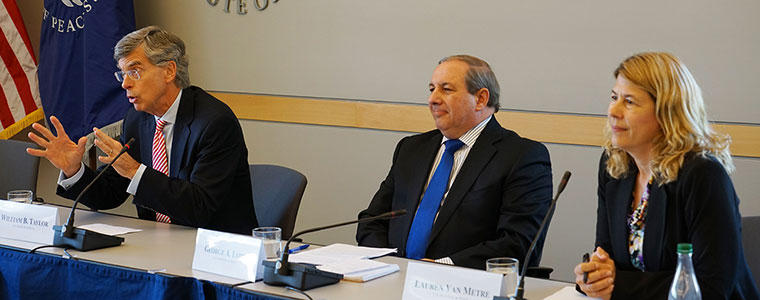Assessing Ukraine: The Elections, Relations with Russia and the Future of Sanctions
Read the Event CoverageThe meaning and scope of the recent elections held in Ukraine have deep implications for both that country and the other former Soviet republics as well as consequences in Russian relations with the West.

On June 5th, 2014 from 1:00-2:30 PM, USIP held a conversation with William B. Taylor, USIP vice president for Middle East and Africa and former U.S. Ambassador to Ukraine, and George A. Lopez, USIP vice president for the Academy for International Conflict Management and Peacebuilding.
Ambassador Taylor discussed his first-hand observations of the election in Ukraine and shared his assessment of the prospects for Ukraine and its relations with Russia and the West going forward. George A. Lopez, author/editor of six books and more than 40 articles on economic sanctions, assessed the impact of sanctions on Russia in this crisis and what might be expected in the future.
Speakers
Lauren van Metre, Moderator
Director, Grants Strategy & Applied Research on Conflict, U.S. Institute of Peace
William B. Taylor
Vice President for Middle East and Africa, U.S. Institute of Peace
George A. Lopez
Vice President for the Academy for International Conflict Management and Peacebuilding, U.S. Institute of Peace



